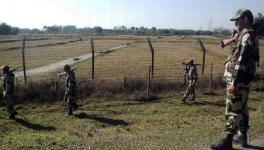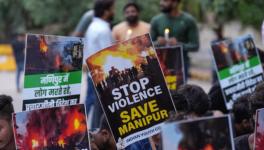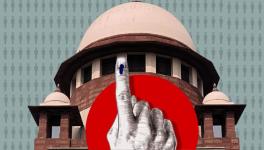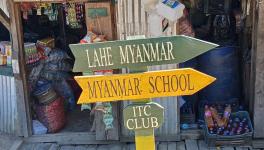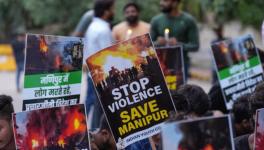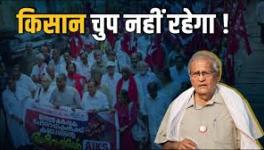Manipur: In a First Under Prez Rule, ‘Tactical Retreat’ by Meiteis
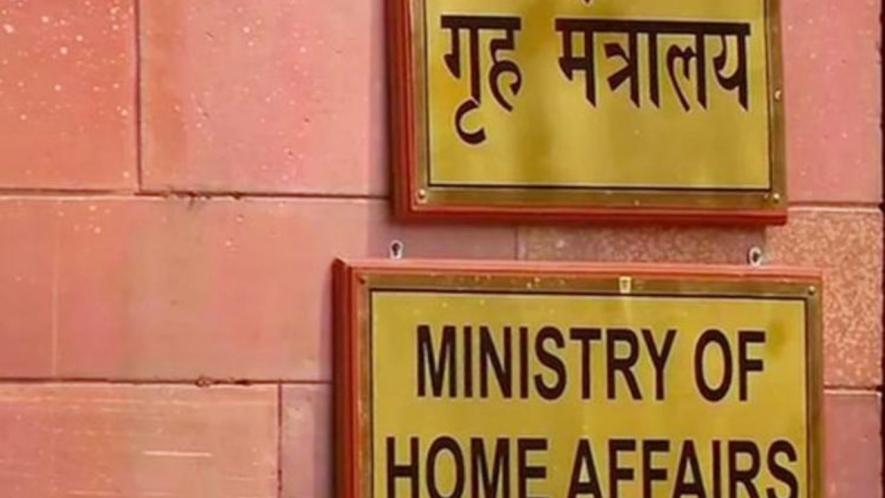
File Image
Kolkata: If the only constant in Manipur since the outbreak of ethnic violence on May 3, 2023, remains the hills-inhabited Kuki-Zos’ accusation that the Valley-based Meiteis, with their control over administration, have been discriminating them, it is now the turn of the Meiteis, who account for 53% of the state’s population, to protest the Kuki-Zos’ “overbearing” stance and blocking their free movement.
Judging by what happened on April 13, the incident may be seen as a clear case of retreat by the Meiteis in the face of “stern warnings” by the Kuki-Zos. Not only that, the incident has forced the Union Ministry of Home Affairs (MHA) to revisit its plan for the making the two warring parties sit across the table for the second time and avoid the unpleasant experience that marked its first tripartite exercise on April 5, in New Delhi.
The reluctance of the Kuki-Zo representatives prevented the MHA from getting the stamp of a joint resolution for the six key points it had drafted. The tripartite meeting was presided over by MHA’s advisor (North-East) A K Mishra.
On Sunday, April 13, Kuki-Zos organised multiple vigils along the buffer zone in Churachandpur – a hill district – to thwart the Meiteis programme for climbing the Thangjing Hill (also spelt as Thangting) as part of their annual pilgrimage. A banner put up at the protest site ruled out allowing the Meiteis, in what the protestors claimed, was ‘Kukiland’ until a political solution was clinched ‘for us’. Slogans written on the placards put up read: “Hills are safe without Meiteis”, “Hills and valleys are divided”, “No trespassing by Meiteis” and “We want separate administration”.
According to informed sources, the Meitei pilgrims exercised restraint on the advice of community seniors and called off the programme for climbing the Tangjing Hills as part of the Meitei New Year celebrations. “It was a tactical retreat in the interest of peace”, sources added.
What happened on Sunday, April 13, was, in a sense, (The buffer zone is a narrow strip that separates the Meitei-dominated Imphal Valley from the generally low hills which are inhabited mostly by the kuki-Zo- the culmination of a strongly-worded warning issued by several Kuki-Zo civil society organisations to the effect that they would deem it a direct challenge to their community if any attempt was made by anybody to breach the buffer zone. Hmar tribes. A retired IAS officer told this correspondent that New Delhi normally does not use the description ‘buffer zone’, a term used by the Army and Assam Rifles. The Centre’s usual description is: ‘vulnerable conflict areas’).
Without losing much time, the New Delhi-based Meitei Heritage Society (MHS), an arm of Meitei Heritage Welfare Foundation, took up the matter with Union Home Minister Amit Shah. In a strongly-worded letter dated April 15 to Shah, with a copy to Governor Ajay Bhalla, MHS urged the minister to take decisive action against the elements that denied the Meitei pilgrims their right to free movement. The response of New Delhi “will determine whether the Indian State prevails’ or whether the Chin-Kuki militants and their frontal groups “are allowed to overrule the Rule of Law …… Such actions are comparable to Hindus being barred from their pilgrimage to Kailash Parbat or Muslims from travelling to Mecca”.
The MHA is keen to hold the second tripartite meeting in the next two-three weeks. It remains to be seen whether the Kuki-Zos’ stance on Meitei pilgrims aborted pilgrimage to Thanjing Hills casts a shadow and MHA’s persuasive exercise requires a longer time. What cannot be missed is that Kuki-Zos have asserted during President’s Rule, which commenced on March 13, and despite a visible improvement in the law and order situation.
The participation in the first tripartite meeting held on April 5 and the assessment of informed sources, including some participants, provide some indications as to what might happen at the second tripartite which is yet to be scheduled.
The Meiteis were represented by the Federation of Civil Society Organisations and All Manipur United Clubs’ Organisation (Amuco). The Kuki-Zos were represented by the Kuki-Zo Council (KZC) and the Zomi Council. There were some other representatives, too.
It is significant that a prominent Meitei civil society outfit – the Coordinating Committee on Manipur Integrity (Cocomi) – did not make it. Confirming non-participation, a Cocomi statement on the day of the meeting called the exercise “a yet another tactical manoeuvre to fabricate an illusion of progress, conveniently timed to furnish talking points for the home minister’s parliamentary address”.
Asked about the non-participation decision, Cocomi convener Khuraijam Athouba told this correspondent: “First, rule of law must be established” (Latest indications are that Cocomi wants MLAs either to facilitate formation of a ministry or “step aside” to facilitate fresh elections as President’s Rule is not the answer As is known, the Assembly is under suspended animation].
Henlianthang, chairman of KZC, which excused itself from okaying the draft joint resolution, however, termed the meeting “historic”. He pointed out that a joint resolution is a sensitive issue and cannot be rushed through; “our people have to consulted”.
KZC’s general secretary Rev Dr V L Nghakthang told NewsClick: “It was a good beginning, but much path has to be traversed”.
Zomi Council chairman Vumsuan Naulak told NewsClick that the meeting was called to discuss serious matters; how can clubs – may be for indoor or outdoor sports or cultural activity be involved? Are they competent to give inputs? He was referring to Amuco’s participation. The participation should be at a high level with persons known for their sagacity and leadership qualities, Naulak observed.
The president of National People’s Party’s (NPP) Manipur unit, Yumnam Joykumar Singh, a former DGP of Manipur, told NewsClick: “The April 5 meeting was a non-starter; serious efforts must precede such an exercise.” (NPP is headed by Meghalaya Chief Minister Conrad Sangma).
Meanwhile, the six points of the draft are:
--Each side will appeal to its people to refrain from violence against members of the other community
--Both sides appreciate steps taken by Governor to restore peace, including facilitating surrender of arms
--Both sides acknowledge the difficulties faced by the public because of the restrictions on free movement on Manipur’s national highways and will cooperate to normalize travel on the highways
-- Both sides will welcome any government initiative to facilitate homecoming by the displaced, subject to logistics and security arrangements being made by the government
-- Both sides appeal to Governor to prioritise development in the areas neglected during the conflict and
-- Both sides agree to all long-term and contentious issues being taken up with the Centre for resolution through dialogue.
Sources NewsClick talked to said: “The draft reads well. MHA will be deemed to have achieved a measure success when it gets the joint resolution accepted by the two warring sides”.
The writer is a freelancer based in Kolkata.
Get the latest reports & analysis with people's perspective on Protests, movements & deep analytical videos, discussions of the current affairs in your Telegram app. Subscribe to NewsClick's Telegram channel & get Real-Time updates on stories, as they get published on our website.









